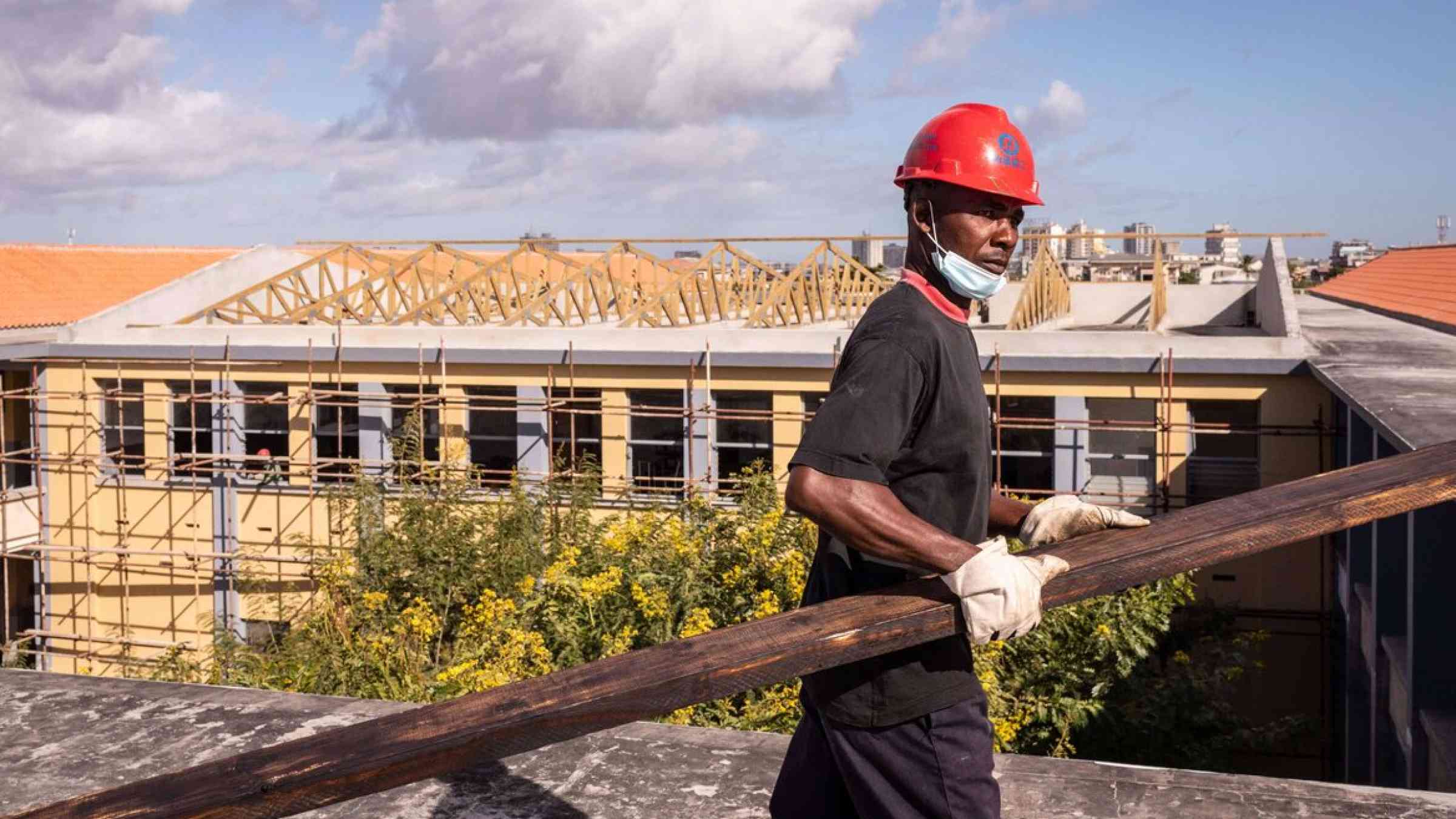
In the aftermath of the devastating events in Derna, Libya, where thousands lost their lives due to torrential rainfall and inadequate infrastructure, this year's International Day for Disaster Risk Reduction theme provides a chance to reflect on the link between disasters and inequality.
Global climate finance can and must play an important role to alleviate global disaster risks, including in some of the world’s poorest communities. A recent report details how the Climate Investment Funds’ (CIF) Pilot Program for Climate Resilience has made communities safer in the face of natural disasters.
One such community is the city of Beira, in Mozambique. In recent years, Beira has made enormous progress in preparing its green and grey infrastructure for natural disasters with support from the Climate Investment Funds (CIF) and the World Bank. We asked Xavier Agostinho Chavana, World Bank Disaster Risk Management Specialist, to answer three questions about Beira.
1. Why was a resilience program urgently needed in Beira?
The coastal city of Beira is experiencing rapid urbanization and is expected to double in size in the next 10-15 years, which puts additional pressure on infrastructure and services. Beira has always been highly vulnerable to flooding, but climate change is turbocharging the impact of weather events such as torrential rain or tropical cyclones, leaving its 600,000 residents even more exposed. The program was urgently needed to strengthen coastal protection, improve drainage systems, and enhance the city's overall resilience to future shocks.
2. What was done to help and why was CIF’s concessional support required?
The World Bank and the Government of Mozambique developed and implemented a $120m plan for the city, enabled by $15.56m in highly concessional finance from CIF. CIF funding was critical to the financial viability of the project. Specifically, the CIF grant helped fund drainage improvements, solid waste management, and capacity building for flood emergency response.
The upgrade in stormwater drainage resulted in a 70% reduction in flood risks and provides enhanced flood protection to an estimated 234,000 people. To further protect residents with CIF grant support, the city adopted a nature-based approach, transforming the Chiveve River area to provide ecosystem, economic, and recreational opportunities. This increased the perceived and realized value of the riverbanks, reducing future encroachment. With less waste and a healthy river, residents feel safer, and this green infrastructure provides enhanced flood protection to 71,000 people.
3. Looking back at this project and the climate events that have struck the city since then, what did you learn and what is next for Beira?
While the city of Beira has coped well with storms that hit in recent years, more investments are needed. As urbanization develops, we must protect current gains and further expand the flood and storm surge protection infrastructure to include more neighborhoods, people, and critical assets. It is also necessary to invest in a city-wide early warning system and capacity building at the municipal level. Local stakeholders must be empowered to operate and maintain current and planned investments, to ensure infrastructures perform well when the city is battered with extreme climate events.
Lessons learned from resilience investments in cities like Beira constitute the foundation of CIF’s Climate Smart Urbanization program. More than half of the world population lives in urban areas today. This number will likely grow to 68% by 2050. Cities consume more than 70% of the world’s energy and produce significant levels of greenhouse gas emissions while also being the hotspots of widespread, dangerous, and increasingly irreversible impacts of extreme heat, devastating floods, and rising sea levels. CIF’s Climate Smart Urbanization program will address this urgent challenge by pioneering a scalable and replicable climate-smart model of urban development that is coordinated, compact, and connected. It will establish incentives for private sector investments that support green urban projects, particularly in fast-developing cities in emerging economies that are threatened by the climate crisis. The Climate Smart Urbanization program builds on CIF's proven programmatic approach and 15 years of experience supporting low-carbon and climate-resilient cities and towns around the world.
